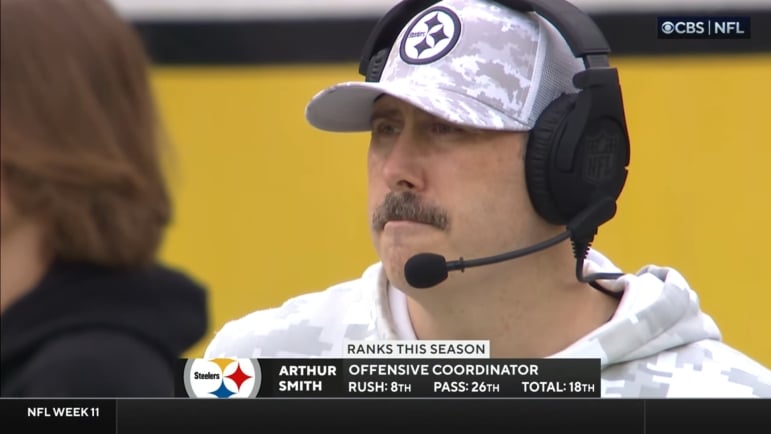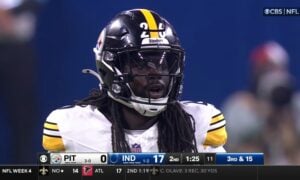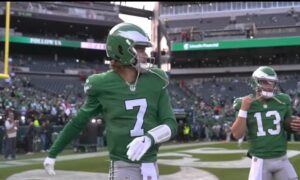After failing to get results from internal candidates Randy Fichtner and Matt Canada, the Pittsburgh Steelers went outside the organization to find their next offensive coordinator. A condensed search led them to hire Arthur Smith, experienced and proven and who had just been fired as the Atlanta Falcons’ head coach. While Pittsburgh finished with better overall results in 2024, 22.4 points per game and a 16th-place ranking, the offense went into a shell down the stretch and failed to score more than 17 points in any of its final five games.
Still, Mike Tomlin seemed pleased with the job Smith did with the offense in his first season.
“I thought we had a good experience in a lot of areas,” Tomlin said Tuesday via the team’s YouTube channel. “Certainly the fact that we’re talking here today is reflective of it has not always been good. But that could be any component of this thing, man.”
Smith’s offense was certainly constructed the way it has been during his other stops. The Steelers brought a run-first approach aiming to control the football on the ground. Their 533 rushing attempts ranked fourth in the NFL while finishing 29th in pass attempts. Playing with leads helped their cause for most of the regular season but even removing game circumstance, the Steelers were still run-heavy. Through the first three quarters of 2024 when score impacts play calling less, Pittsburgh tied for seventh with 346 rushing attempts and ran the ball 45.9 percent of the time.
The Steelers leaned on tight ends more than wide receivers with 12 and 13 personnel groupings frequently used. Only one wide receiver had significant production in George Pickens, whose 58/900/3 line would’ve looked even stronger had he not missed three games with a hamstring injury. No other wide receiver caught more than 36 passes and Calvin Austin III was the only other to catch at least 25.
Tomlin deflected part of the answer about his OC, focusing on the big picture than Smith’s individual performance.
“We’re so interdependent in this business, and that’s why it’s the ultimate team game,” he said. “I get asked often how Russ [Wilson] performed or how Arthur performed or how the defense performed. And those lines get blurred because of the interdependency in this game. And that’s just a component of it. And so certainly there’s impact from outside forces on evaluations.”
At their best, the Steelers moved the ball like a top-10 scoring offense. But they couldn’t sustain it and badly regressed becoming the first Pittsburgh team since 1969 to be held at or under 17 points in five-straight games. Slow starts plagued the team throughout the entire season, the Steelers failing to score a first-drive touchdown in all 18 games they played. They were the NFL’s worst first-down unit, an area that regressed even compared to Canada.
Unless Smith becomes a head coach in 2025, he figures to return next season. But he, like the rest of the team, has serious work to do in order to get the sour taste out of his mouth of how the season ended.








